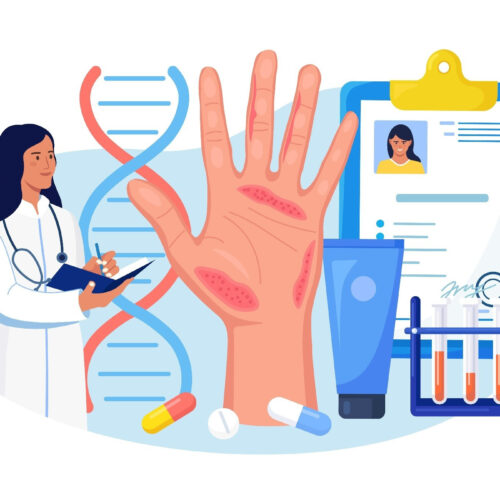NEWS RELEASE 11-JUL-2024 Waltham — July 11, 2024 — An investigational medication designated TAS-303 shows efficacy and safety in treatment of women with stress urinary incontinence (SUI), reports a placebo-controlled clinical trial in the August issue of The Journal of Urology®, an Official Journal of the American Urological Association (AUA). The journal is published in the...
Tag: <span>incontinence</span>
What is Incontinence-Associated Dermatitis?
By Hidaya Aliouche, B.Sc. Reviewed by Aimee Molineux Incontinence-associated dermatitis (IAD) is a form of dermatitis caused by irritants that develop from chronic exposure to urine or liquid feces. Incontinence-associated dermatitis (MASD) consists of one of four types of moisture-associated skin damage. Moisture-associated skin damage has been defined as gradual inflammation and the erosion of the...
New research takes p*** out of incontinence
by University of Portsmouth Millions of people might eventually be spared the embarrassment and extreme isolation caused by wetting themselves, thanks to new research. One in every five people has a lower urinary tract disorder called overactive bladder which, for some, means not being able to hold in urine, needing to go to the toilet...
Review: Biofeedback could help treat a number of conditions
by Tristan Horrom, Veterans Affairs Research Communications A literature review by a team at the VA Portland Health Care System and Oregon Health & Science University found evidence that biofeedback can be a helpful treatment for several conditions. Studies show that biofeedback can reduce headache pain, improve both urinary and fecal incontinence, and aid in...
Half of older women suffer incontinence, many don’t tell their doc
Nearly half of older American women have urinary incontinence, but many have not talked to a doctor about it, a new national poll shows. More than 1,000 women, aged 50 to 80, were asked questions about their bladder control. The poll found that 43 percent of those in their 50s and 60s had urinary incontinence....
Men tolerate stress incontinence years before seeking help
UT SOUTHWESTERN MEDICAL CENTER DALLAS – June 22, 2018 – Men often tolerate stress urinary incontinence for more than two years before seeking medical help – and one-third put up with it for more than five years, making it important for doctors to check for this problem, a new study from UT Southwestern researchers advises....

